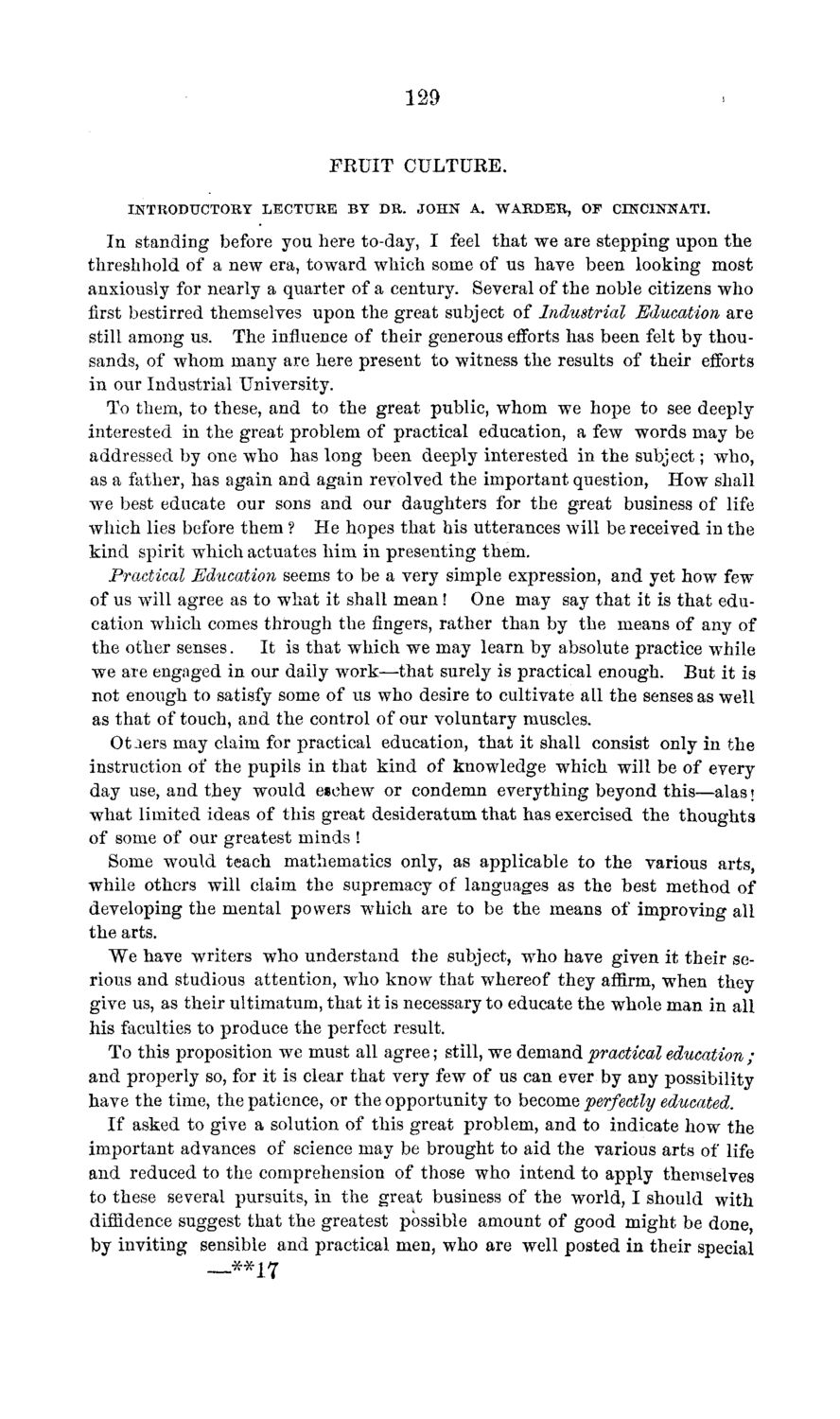| |
| |
Caption: Board of Trustees Minutes - 1869
This is a reduced-resolution page image for fast online browsing.

EXTRACTED TEXT FROM PAGE:
129 FRUIT CULTURE. I N T R O D U C T O R Y L E C T U R E B Y D R . J O H N A. W A R D E R , O F CINCINNATI. In standing before you here to-day, I feel that we are stepping upon the threshhold of a new era, toward which some of us have been looking most anxiously for nearly a quarter of a century. Several of the noble citizens who first bestirred themselves upon the great subject of Industrial Education are still among us. The influence of their generous efforts has been felt by thousands, of whom many are here present to witness the results of their efforts in our Industrial University. To them, to these, and to the great public, whom we hope to see deeply interested in the great problem of practical education, a few words may be addressed by one who has long been deeply interested in the subject; who, as a father, has again and again revolved the important question, How shall we best educate our sons and our daughters for the great business of life which lies before them ? He hopes that his utterances will be received in the k i n d spirit which actuates him in presenting them. Practical Education seems to be a very simple expression, and yet how few of us will agree as to what it shall mean! One may say that it is that education which comes through the fingers, rather than by the means of any of the other senses. It is that which we may learn by absolute practice while we are engaged in our daily work—that surely is practical enough. But it is not enough to satisfy some of us who desire to cultivate all the senses as well as t h a t of touch, and the control of our voluntary muscles. Otaers may claim for practical education, t h a t it shall consist only in the instruction of the pupils in that k i n d of knowledge which will be of every day use, and they would eschew or condemn everything beyond this—alas r what limited ideas of this great desideratum that has exercised the thoughts of some of our greatest minds ! Some would teach mathematics only, as applicable to the various arts, while others will claim the supremacy of languages as t h e best method of developing the mental powers which are to be the means of improving all the arts. We have writers who understand the subject, who have given it their serious and studious attention, who know that whereof they affirm, when they give us, as their ultimatum, that it is necessary to educate t h e whole man in all his faculties to produce the perfect result. To this proposition we must all agree; still, we demand practical education ; and properly so, for it is clear that very few of us can ever by any possibility have the time, the patience, or the opportunity to become perfectly educated. If asked to give a solution of this great problem, and to indicate how the important advances of science may be brought to aid the various arts of life and reduced to the comprehension of those who intend to apply themselves to these several pursuits, in the great business of the world, I should with diffidence suggest that the greatest possible amount of good might be done by inviting sensible and practical men, who are well posted in their special
| |